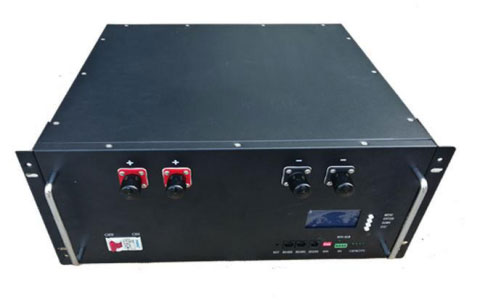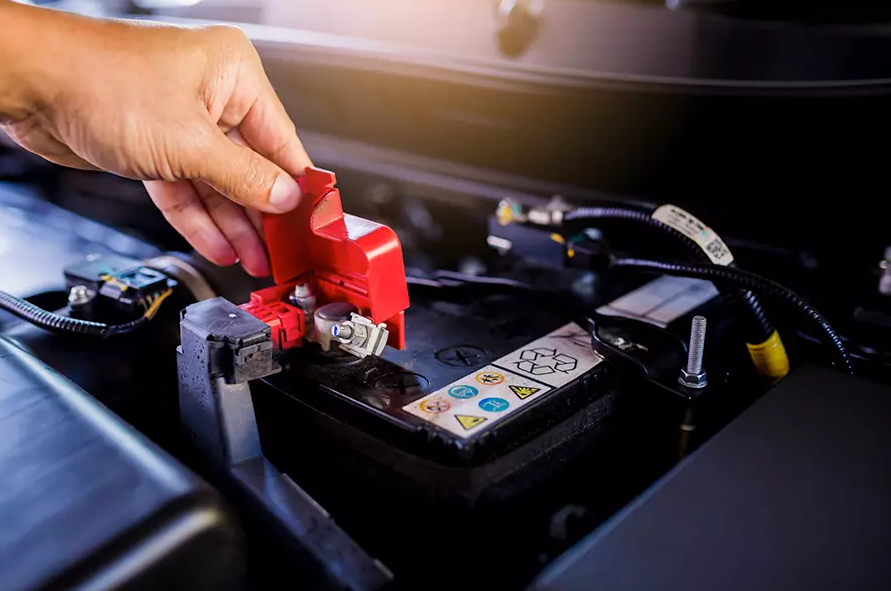China Revolutionizing the Battery Industry: Unlocking the Potential of Energy Storage
The battery industry is on the verge of a significant transformation that has the potential to revolutionize the way we store and utilize energy. With the increasing demand for renewable energy sources and the growing need for reliable energy storage solutions, the focus is now on advancing battery technology to meet these challenges.
Energy storage has become a critical component in our transition towards a sustainable future. It provides a means to capture and store energy generated from renewable sources such as solar and wind, which are intermittent in nature. By storing excess energy during peak production periods and releasing it during times of high demand, energy storage systems can help stabilize the grid and ensure a reliable and efficient supply of electricity.
The key to revolutionizing the battery industry lies in unlocking the potential of energy storage. This requires advancements in battery technology that enhance energy density, increase efficiency, and prolong battery life. Researchers and scientists worldwide are actively working towards developing new materials and innovative designs to achieve these goals.
One promising technology that is gaining traction is lithium-ion batteries. These batteries have become the industry standard for portable electronics due to their high energy density and long cycle life. However, there are still limitations that need to be overcome to unleash their full potential. For instance, the cost of production and the limited availability of raw materials hinder their widespread adoption.
To address these challenges, researchers are exploring alternative materials such as solid-state electrolytes, which offer improved safety and higher energy densities. By replacing the liquid electrolytes used in traditional lithium-ion batteries with solid-state electrolytes, the risk of thermal runaway and explosions can be significantly reduced. Furthermore, solid-state electrolytes enable the use of lithium metal anodes, which have a higher energy density compared to graphite anodes commonly used today.
Another area of focus is the development of flow batteries, which offer the advantage of decoupling storage capacity from power output. Flow batteries store energy in liquid electrolytes contained in external tanks, allowing scalability and flexibility. These batteries have the potential to revolutionize large-scale energy storage applications, such as grid-level integration of renewable energy sources.
Moreover, research efforts are being directed towards the exploration of new battery chemistries beyond lithium-ion. Sodium-ion batteries, for example, offer a promising alternative to lithium-ion batteries as sodium is more abundant and widely available. Although sodium-ion batteries currently have lower energy densities and shorter lifespans than their lithium counterparts, ongoing research aims to improve their performance and durability.
In addition to technological advancements, the battery industry also requires supportive policies and investments to foster its growth. Governments and regulatory bodies must provide incentives for the adoption of energy storage systems and encourage research and development in battery technology. Increased collaboration between industry stakeholders, academia, and government entities is essential for accelerating the deployment of energy storage solutions.
The revolutionizing of the battery industry will not only have significant implications for the renewable energy sector but also for various other industries. Transportation, for instance, stands to benefit greatly from advancements in battery technology. Electric vehicles (EVs) are gaining popularity as a sustainable mode of transportation, and improved battery technology will enhance their range, charging speed, and overall performance.

As the battery industry continues to evolve, it is essential to prioritize sustainability and environmental considerations. Battery recycling programs and the responsible sourcing of raw materials are crucial for minimizing the environmental impact of battery production and disposal.
In conclusion, the revolutionizing of the battery industry is underway, driven by the need for efficient and reliable energy storage solutions. Advances in battery technology, such as solid-state electrolytes, flow batteries, and alternative chemistries, are unlocking the potential of energy storage. Supportive policies and investments are necessary to accelerate the deployment of these solutions. With continued innovation and collaboration, the battery industry holds the key to a sustainable energy future.
-
 Introduction Batteries play an essential role in today\'s world, powering everything from mobile phones to electric cars. Two types of batteries that have gained popularity in recent years are LiFePO4 and lithium-ion batteries. While both batteries are lithium-based, they differ in their composition and performance. In this article, we will compare LiFePO4 vs lithium-ion batteries and determine which one...더 읽어보세요
Introduction Batteries play an essential role in today\'s world, powering everything from mobile phones to electric cars. Two types of batteries that have gained popularity in recent years are LiFePO4 and lithium-ion batteries. While both batteries are lithium-based, they differ in their composition and performance. In this article, we will compare LiFePO4 vs lithium-ion batteries and determine which one...더 읽어보세요 -
 노련한 선원이든 초보 보트 사용자이든 물 위에서 원활하고 즐거운 경험을 하려면 안정적이고 효율적인 전원을 확보하는 것이 필수적입니다. 해양 시동 배터리는 모든 보트의 핵심 구성 요소로, 엔진을 시동하고 다양한 선상 시스템에 전원을 공급하는 데 필요한 에너지를 제공합니다. 이번 글에서는 그 중요성에 대해 알아보겠습니다...더 읽어보세요
노련한 선원이든 초보 보트 사용자이든 물 위에서 원활하고 즐거운 경험을 하려면 안정적이고 효율적인 전원을 확보하는 것이 필수적입니다. 해양 시동 배터리는 모든 보트의 핵심 구성 요소로, 엔진을 시동하고 다양한 선상 시스템에 전원을 공급하는 데 필요한 에너지를 제공합니다. 이번 글에서는 그 중요성에 대해 알아보겠습니다...더 읽어보세요 -
 When it comes to finding the right U series supplier for your industrial needs, there are several factors to consider. The U series refers to a range of bearings manufactured by various companies that are commonly used in industrial applications, including heavy machinery, automotive, and aerospace industries. Here are some key factors to consider when selecting a U series supplier...더 읽어보세요
When it comes to finding the right U series supplier for your industrial needs, there are several factors to consider. The U series refers to a range of bearings manufactured by various companies that are commonly used in industrial applications, including heavy machinery, automotive, and aerospace industries. Here are some key factors to consider when selecting a U series supplier...더 읽어보세요 -
 When it comes to owning a car, one of the most important things you need to consider is the battery. This is because it is responsible for starting the engine and powering all the electrical systems in your vehicle. Therefore, it is essential to choose a reliable car starter battery that can meet your needs. In this article, we...더 읽어보세요
When it comes to owning a car, one of the most important things you need to consider is the battery. This is because it is responsible for starting the engine and powering all the electrical systems in your vehicle. Therefore, it is essential to choose a reliable car starter battery that can meet your needs. In this article, we...더 읽어보세요 -
 Are you tired of experiencing a dead battery in your car? Having a reliable starter battery pack can solve this problem for you. A starter battery pack is a portable power bank that can store power and jump-start your car when its battery is dead. It is a time-saving and cost-effective solution for those who frequently experience battery failures. In...더 읽어보세요
Are you tired of experiencing a dead battery in your car? Having a reliable starter battery pack can solve this problem for you. A starter battery pack is a portable power bank that can store power and jump-start your car when its battery is dead. It is a time-saving and cost-effective solution for those who frequently experience battery failures. In...더 읽어보세요 -
 Introduction In recent years, the advancements in technology have revolutionized various sectors, including the military. One significant development is the application of lithium batteries in military equipment. Lithium batteries have become the preferred choice due to their high energy density, lightweight nature, and extended lifespan. This article aims to discuss the advancements of lithium batteries in military equipment, highlighting their...더 읽어보세요
Introduction In recent years, the advancements in technology have revolutionized various sectors, including the military. One significant development is the application of lithium batteries in military equipment. Lithium batteries have become the preferred choice due to their high energy density, lightweight nature, and extended lifespan. This article aims to discuss the advancements of lithium batteries in military equipment, highlighting their...더 읽어보세요 -
 LiFePO4 batteries are known for their high energy density, long cycle life, and low environmental impact. They are widely used in various applications, from electric vehicles to renewable energy storage systems. However, they are vulnerable to temperature extremes, especially low temperatures. When the temperature drops below a certain level, the battery's performance and lifespan can be significantly reduced. To...더 읽어보세요
LiFePO4 batteries are known for their high energy density, long cycle life, and low environmental impact. They are widely used in various applications, from electric vehicles to renewable energy storage systems. However, they are vulnerable to temperature extremes, especially low temperatures. When the temperature drops below a certain level, the battery's performance and lifespan can be significantly reduced. To...더 읽어보세요

